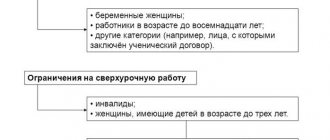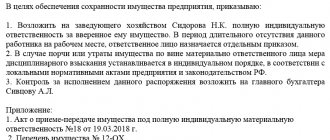How to get rid of subsidiary liability
The head of the Public Reception under the Commissioner for the Protection of Entrepreneurs' Rights in Moscow and the vice-president of the Association of Lawyers in the Field of Liquidation and Bankruptcy, Vladimir Kuznetsov, as part of a business picnic at the Grebnevo estate, spoke about business protection, the features of bringing to subsidiary liability, as well as what to do , if responsibility still overtakes.
Recently, on Arbat, 10 minutes before the end of her work shift, a government employee, having started filming an optical store from the street on her phone, entered a room where there were no visitors. There was only one employee inside, with a mask on her face, but without gloves - she was typing the results of her work into the computer. She was immediately charged with violating the mask and glove requirement and was promised to be fined within a day. The entrepreneur managed to complain to our headquarters for the protection of business rights in the morning of the next day, and by the evening the government called, apologized and left.
I say this because if an entrepreneur feels that someone is going too far, they need to come to us. We arrive in a mobile headquarters car - many government agencies immediately stop making illegal demands and begin to approach the situation not from the letter of the law, but from the spirit of the law.
Vicarious liability
As vice-president of the Association of Liquidation and Bankruptcy Lawyers, I want to talk about subsidiary liability. This is an additional liability when the debtor cannot fulfill the main obligation. The head of the organization, as well as the company’s shareholders and even lawyers, accountants and auditors can be held vicariously liable.
It is very important that those who start a business immediately become accustomed to legal literacy. Trading is not something you can buy for X and sell for 3X. Trading is also the ability to predict what will happen if suddenly you cannot sell for 3X, or X, or even 0.5X.
Cash gaps can happen to every entrepreneur, the question is how he manages these gaps.
It is very important to understand what will happen if someone fails to fulfill their obligations. If someone creates a limited liability company and this company is unable to fulfill some obligations, many people think that the maximum liability is within the contributed authorized capital, 10 thousand rubles, but this is far from the case. If it is proven that the head of the company took incorrect, unreasonable actions that led to damage to creditors, claims may be applied to him within the amount of obligations to counterparties. Despite the fact that these were the obligations of a legal entity.
I want everyone to evaluate this before any transactions begin. If you don’t know any nuances, if you are just at the beginning of your business journey, come to a lawyer.
It is necessary to have a person who will lay out all the risks and explain what will happen if something goes wrong.
For example, an entrepreneur finds himself in a difficult situation and cannot pay rent. If, at the moment when he is at the stage of default, he takes on some additional obligations that may worsen his financial position (for example, he accepts an advance payment from a client for a product that he does not have in stock), and at the same time he will not be able to deliver the goods or sell them, the transaction will not take place. These will be the guilty actions of the director, because in the presence of unfulfilled obligations in the amount of rent, he has accumulated other obligations. And now the claims will be far from being within the scope of the authorized capital, but within the scope of the unpaid rent and obligations to the counterparty with whom he entered into an agreement.
If the accountant begins to recommend at least something to the entrepreneur in this part, and if the result of the recommendations is optimization, then with a high degree of probability, subsidiary liability will be applied to the accountant. I can’t say that this happens in 100% of cases, but you need to know about it. This is especially true for lawyers and accountants, because often business owners and managers, when they understand that subsidiary liability will be applied to them in any case, try to share this mass of responsibility with someone else.
Lawyers and accountants should not talk in a tone of “is it necessary or not,” but “this is correct, and this can lead to such consequences.”
You need to pay due attention to what you say to your business partners. Because when everything is good, everything is good. And when everything is bad, the parties try to blame it on each other.
What can cause subsidiary liability?
It is impossible to name a complete list. But we can say for sure that concluding transactions on non-market conditions (significantly cheaper than on the market), shipping goods without prepayment in favor of a counterparty with whom no business has previously been carried out are some of the first reasons why, if suddenly it comes to bankruptcy, The bankruptcy trustee will evaluate the financial and economic activities of the head of the debtor company. Such deals should not happen.
If you still want to sell some illiquid product at a price significantly lower than the market price, I recommend that you always obtain reports from appraisers, preferably not even one company, but two different ones.
This is necessary so that later it cannot be said that you yourself made the decision to sell.
Abroad, large buildings are often sold for 1 euro. This is not because they really cost that much, but because the person taking over this asset will be forced to invest more. And there is an explanation for this. If you are selling a highly liquid product, an apartment in the center of Moscow for a million rubles, then the transaction is clearly aimed at removing the assets of a legal entity - this may cause the person who decided to complete the transaction to be subject to subsidiary liability in the amount of the market value of the asset.
You also need to remember that when it comes to tax optimization to reduce the tax base, and companies that did not actually conduct business are indicated as suppliers, the person who enters false data into the reporting may also receive subsidiary liability. This is the director, but more often the accountant is the one who prepared the reports and could not help but know that the data was fictitious. Even if the director says to the accountant: “Bring it in, nothing bad will happen there, if they just pull me,” this is not so. If it comes to being held vicariously liable, the accountant will have real risks. Today, the number of such cases is seriously increasing, so you always need to think about the consequences.
Guilty omission
In addition to culpable actions, there is also the concept of “culpable omission.” It can begin from the actions of a participant who avoids making a decision at the general meeting of participants with the impossibility of approving a major transaction. If this happens, it will be difficult to attract the participant, but there is a possibility of bringing him to subsidiary liability.
The concept also applies to those who have receivables on their balance sheet, which resulted from tax optimization of previous periods, and do not take any action to collect receivables. If there is a receivable (even if it is friendly), but you did not write letters of claim to the counterparty demanding the return of the debt, or did not file a lawsuit, then you need to understand that this is inaction. It will be guilty, and within the limits of the amount of this receivable, the director may be held vicariously liable.
It is necessary to remember the period of 30 days when the director discovers or should have discovered an excess of liabilities over the assets of the organization and the need to file for bankruptcy.
This must be used even if the meeting is not scheduled. If you don’t file, it means you’re already guilty. This is something that almost all companies with cash gaps face.
What influences the court’s decision to impose subsidiary liability?
I often encounter both sides - those who want to hold the manager vicariously liable, and those who want to defend themselves against such accusations. Today, the position of the courts is that in most cases the judge requires to indicate a specific point in time at which specific actions of the director led to specific damage to creditors. This is the difficulty of bringing to vicarious liability.
The courts almost always have this position, except in cases where there is a debt to the budget.
If there is a tax debt, then the likelihood that the court will decide in favor of subsidiary liability is extremely high. You need to understand that if there is some kind of delay with counterparties or a tax audit and you understand that there may not be enough funds to pay, then you need to go to those who can impartially, without wasting money, explain what needs to be done in a crisis situation .
If you come to lawyers at the first signs of insolvency, or when you first receive a claim from a creditor, the likelihood that a competent lawyer will give the right advice is extremely high.
There are different stages of bankruptcy; if you enter into the monitoring procedure, a moratorium is established on the repayment of claims that arose before the introduction of this procedure. This is very important and especially concerns development companies, they often use this. If a company owes money to a large number of suppliers, but its activities are still profitable, refusal of the monitoring procedure can lead to the fact that creditors, winning in court and receiving writs of execution, will simply take away the working capital. If you enter into the monitoring procedure, then it will be impossible to claim this debt for obligations that arose earlier; you will be able to improve your activities by moving from monitoring to recovery. But in order to implement all this, you need to consult with those who really understand this.
The topic “change the director-participant, just drop everything and run away” has its place, but you need to understand that if a competent opponent is fighting against you, then he will organize a survey of the director and the participant, obtaining testimony that this person did not want to become a leader, did not have intentions to do business.
Then there is a guaranteed bringing to subsidiary liability, and management of the company will be lost.
If you have already been held vicariously liable
For example, clients come to us who were “awarded” by the court with half a billion rubles of subsidiary liability. Here is a man who has real estate worth 30 million and a debt of 500 million. You understand that this debt will not be written off as a result of an individual’s bankruptcy - not all debt can be removed through bankruptcy.
If a person has acquired subsidiary liability, then this debt will accompany him all his life, and the only housing that was not taken away during the bankruptcy of an individual will either have to say goodbye after the death of the debtor, or the heirs will accept both the property and the debt.
If this happens, and you are brought to subsidiary liability, there are ways out by selling rights upon request to the person brought to subsidiary liability.
We have such cases, we helped facilitate the sale of rights for 50 million rubles. That is, instead of 500 million rubles, a person found a way to finance and paid 50 million, ceasing to owe everyone.
There is no point in trying to implement this yourself; there are too many pitfalls. If something is not formatted correctly, it will bring even more problems. The main rule is to contact lawyers before you even start doing anything. This will help save your health, nerves and money.
Those close to top officials are also at risk
The situation has worsened not only for the top officials of the company, but also for the specialists close to them - lawyers, chief accountants, deputy managers. With the proper evidence base, these persons can also be recognized as controlling the activities of the organization, and therefore brought to subsidiary liability. Such decisions of Arbitration Courts are gradually beginning to appear, which may lead to certain judicial practice in this direction.
Some courts go further and consider not only full-time accountants, but also entire outsourced companies as persons influencing the company’s activities, which could lead to bankruptcy and outstanding debt. Thus, by the Ruling of the Arbitration Court in case No. A40-33003/17-88-45 “B”, an organization that provides accounting services to the debtor under a contract for the provision of paid services was brought to subsidiary liability.
Forecasts
Currently, a fairly sharp increase in the number of cases related to bringing controlling persons to subsidiary liability is expected. This is primarily due to the epidemiological situation in the world. The restrictive measures introduced to prevent the spread of coronavirus infection had a detrimental effect on the fulfillment of contractual obligations by companies; many of the companies did not survive the crisis and stopped fulfilling their obligations. Provided by Federal Law No. 98-FZ “On Amendments to Certain Legislative Acts of the Russian Federation on the Prevention and Elimination of Emergency Situations,” a moratorium on the bankruptcy of legal entities and individual entrepreneurs whose business was affected by quarantine and some other support measures had a minor effect only on the postponement a surge in claims in Arbitration and courts of general jurisdiction.
And, nevertheless, we can confidently say that bankruptcy, which was completely unpopular just five or six years ago, has gradually taken second place, following alternative options for the “relatively legal” termination of a company’s activities. Although this is an expensive and complex tool, in the capable hands of professionals it can acquire sufficient power to overcome serious debt obligations or, on the contrary, to collect almost impossible debts.
The notorious coronavirus has contributed a lot to the growth in popularity of bankruptcy. Business owners received a powerful reason not to pay their debts, citing force majeure. Number of bankruptcies in 2020-2021 will only grow. Perhaps this circumstance will help push out the “alternative”, beloved by many entrepreneurs, from legal practice.
Bankruptcy is not a universal solution
If you are planning to bankrupt your company only because of fear of subsidiary liability, do not rush. It can hardly be recommended as a universal way out of a situation with unsustainable debt obligations. Do not forget that the procedure can take up to two years. Each individual case must be carefully studied by specialists, assessing the financial activities of the company, the status of the persons who carried out management and made key decisions, and also take into account all other possible nuances of the company’s economic activities in the context of at least the last three years.
Only a detailed audit of the taxes and accounting of an enterprise will make it possible to make a decision on the necessity and justification of bankruptcy proceedings without additional problems complicating the life of the director and participant of the LLC. Or bring to justice the persons controlling the debtor, achieving collection of existing debts within the framework of subsidiary liability.
At the moment, “alternative liquidation” is most likely still the leading method of closing a company. Of course, it is hardly possible to find real statistics on the facts of getting rid of this method, as well as statistics on the consequences that befell the owners of such companies: the main schemes “dissolve” in the mass of ordinary, absolutely legal actions to change the constituent documents of legal entities. Dozens of changes are registered by tax authorities within just 24 hours.






